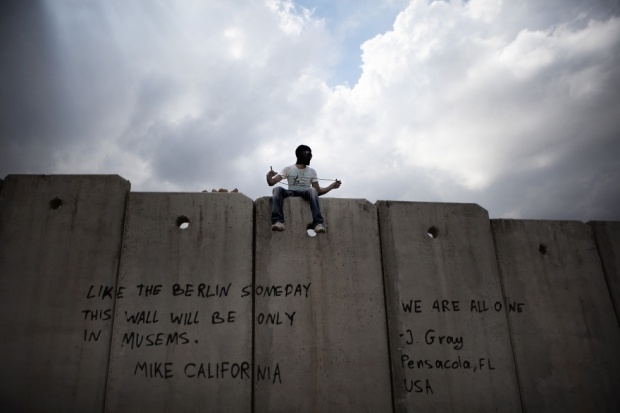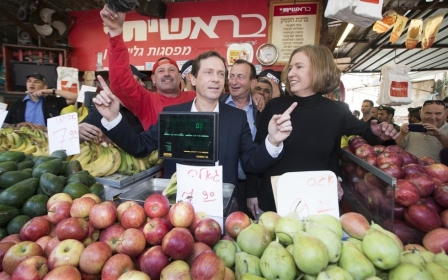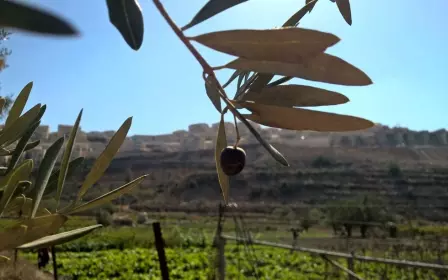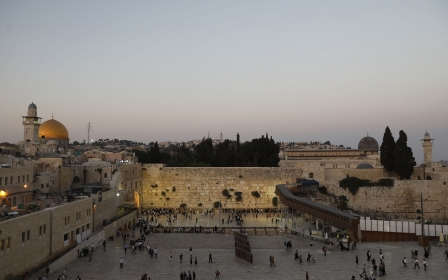Israeli press review: Labor and Livni facing wipeout in elections
Opposition in turmoil with break-ups and resignations
Labor, the largest opposition party in the Knesset, will barely make it into the parliament in upcoming elections on 9 April, according to a poll commissioned by Israel national broadcaster Kan.
And according to Kan, Hatnuah, the erstwhile Labor coalition partner which bested Netanyahu a decade ago, will not earn enough votes to enter the Knesset either.
After Labor leader Avi Gabbay publicly ended the Zionist Union coalition with Tzipi Livni and her Hatnuah faction, the Kan poll suggests his party will win a scant seven seats out of 120 in the upcoming national elections.
If it does not run on a joint ticket with another centrist party, Hatnuah may not even win a solitary seat, the poll predicts.
The same poll found that the New Right, recently founded by ministers Naftali Bennett and Ayelet Shaked and now buttressed by the addition of far-right commentator Caroline Glick –would win nine seats in the Knesset.
That would give it one more seat than the current contingent of the Jewish Home party, which Bennett and Shaked led before breaking off last month.
Without the two ministers, Jewish Home is not expected to garner enough votes to enter the next Knesset.
Netanyahu’s Likud party is still projected to win 28 seats, the most of any party, and the next-largest factions would only win half of that number, at most.
Meanwhile, two veteran left-wing lawmakers announced that they would be retiring from parliamentary politics, making room for fresh faces in the Joint List delegation.
Balad faction leader Jamal Zahalka and Hadash’s Dov Khenin - the lone Jewish MP representing the Joint List coalition – announced their retirement after serving 16 and 13 years in the Knesset, respectively.
Palestinian farmers locked out of land
Palestinian farmers requesting to work their land west of the Israeli separation barrier in the occupied West Bank are far less likely to have those requests accepted, Haaretz reports.
Responding to a freedom of information request from the rights group HaMoked (Centre for the Defence of the Individual), the Israeli defence ministry revealed that it refused 72 percent of requests by Palestinian farmers in 2018.
In 2014, Israel refused requests from just 24 percent of Palestinian farmers.
Moreover, Haaretz notes that of the applications rejected by Israel, only a small number of them were justified on the basis of “security concerns”.
In addition to the much higher rejection rate, far fewer Palestinian farmers are bothering to submit such requests to Israeli occupation forces.
Palestinians made over 24,000 requests of this sort in 2014, but less than 3,000 requests were made in 2018.
Students to be taught about al-Aqsa by those who want it demolished
The Israeli education ministry has accredited a far-right group whose members seek the destruction of Jerusalem’s al-Aqsa compound to teach students about the holy Muslim sites there, and about the Jewish temple that they wish to be built upon their ruins, Israel’s Channel 10 TV reports.
As part of their required coursework in Jewish-Israeli culture, junior high school students at secular public schools will be instructed by the group Students for the Temple Mount.
Like the templar movement’s chief rabbi Yisrael Ariel and many of the movement’s supporters, the leaders of Students for the Temple Mount are known to be followers of the rabbi Meir Kahane, who was widely accused of being a racist. Kahane was assassinated in 1990.
The al-Aqsa Mosque and the Dome of the Rock – two of the holiest sites in Islam – were first constructed on the site 1,300 years ago, on the spot that the Second Jewish Temple had stood more than 600 years before then.
In the 1980s, Jewish terrorists plotted to blow up the Dome of the Rock, but were stopped by Israeli secret services before carrying out their plan.
Calls for the construction of a new Jewish temple on the site had previously only been backed by an extremist minority. But in recent years, support for the templar movement has grown exponentially, attracting many lawmakers and ministers.
State-funded religious schools turn away black students
Despite regular complaints of discrimination, religious schools continue to refuse admittance to ultra-Orthodox students who are black, and the Israeli education ministry continues to fund them, Ynet reports.
“I tried to sign up my children to Talmud Torah, several of the schools, and they didn’t accept us, and it’s clear to me it’s because we are Ethiopians. It’s the fifth time they rejected us,” one mother told the news site. “He didn’t even test the boy, he just immediately rejected him.”
The sentiments were shared by other mothers of Ethiopian descent interviewed by Ynet.
“I got one response from Talmud Torah. He told me: ‘You’re not the Talmud Torah type.’ So I asked him: ‘What is your type?’ And throughout the conversation he only stuttered and never answered my question,” one said.
According to Ynet, Israel’s education ministry and the Jerusalem municipality said that they are “aware of the phenomenon, but are powerless to intervene” – despite up to three-quarters of the schools’ budgets being funded by the government.
Religious schools have also often been accused of rejecting the Mizrahi and Sephardic children of Jewish families who trace their roots to North Africa and the Middle East.
“The kindergarten teacher told me first off, ‘Don’t try to register your daughter, because they don’t accept Sephardim, so they definitely won’t accept Ethiopians’,” another mother said. “There was no one to help us.”
New MEE newsletter: Jerusalem Dispatch
Sign up to get the latest insights and analysis on Israel-Palestine, alongside Turkey Unpacked and other MEE newsletters
Middle East Eye delivers independent and unrivalled coverage and analysis of the Middle East, North Africa and beyond. To learn more about republishing this content and the associated fees, please fill out this form. More about MEE can be found here.





